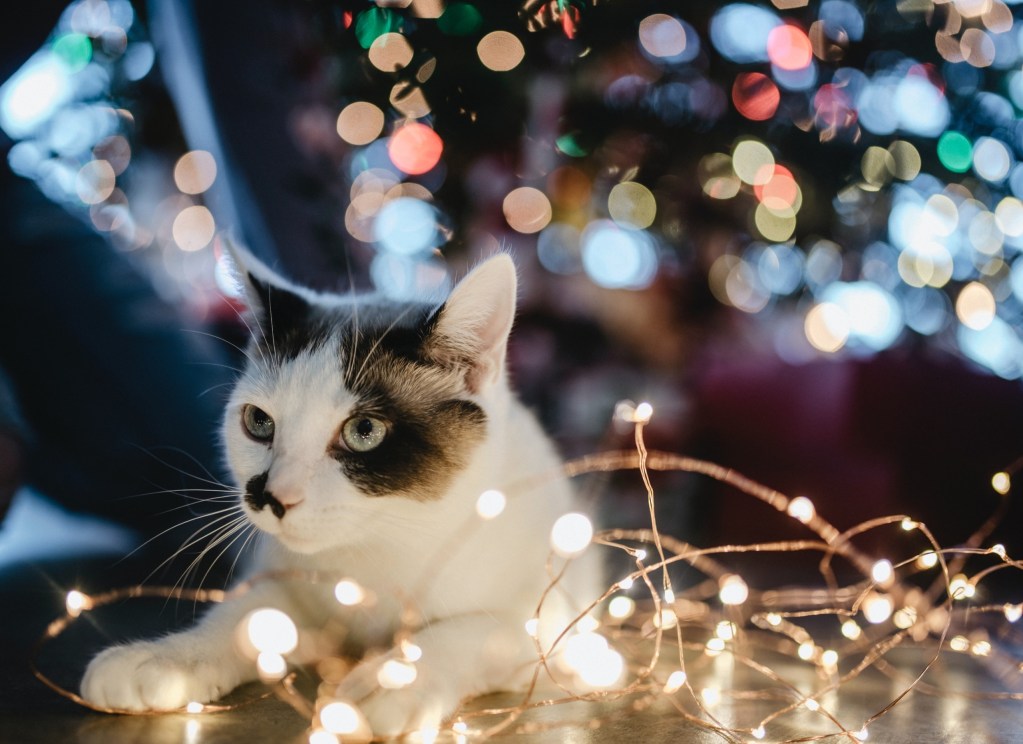
The winter season represents a wonderful time for people and pets to come together, eat great food, and celebrate their holidays. But it’s also the busiest time of the year for vet clinics, in part because pet accidents frequently occur when the family gathers and the greenery comes out.
It’s important for everyone to stay mindful of what can cause harm to an animal that is much smaller than the average human and allergic to very different things. That’s why we’ve put together a quick list — with the help of a few vets — to keep you and your pets safe this Christmas.
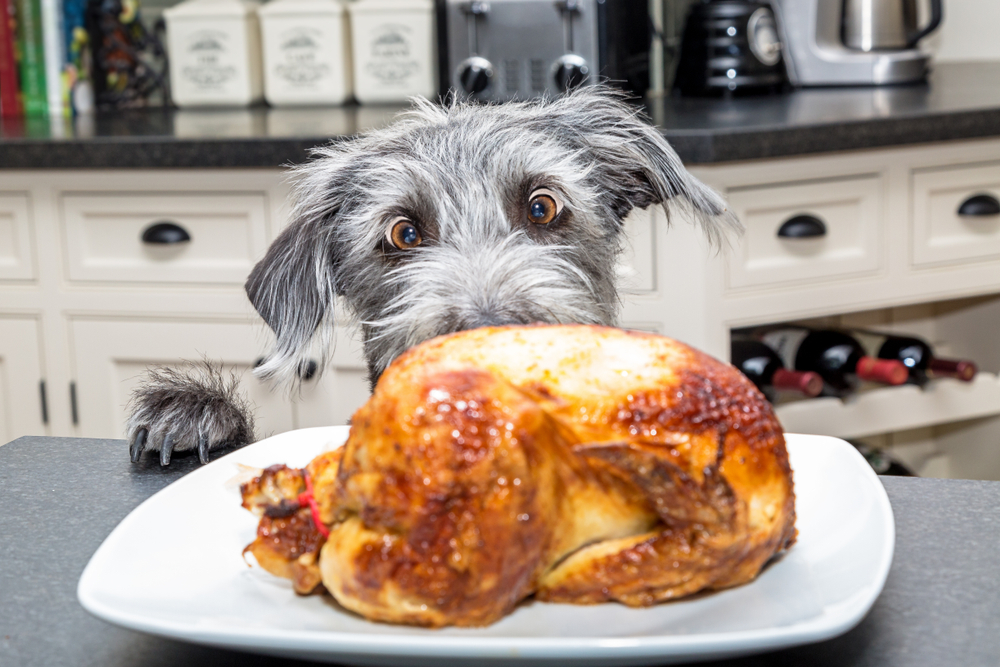
What Christmas food is safe for dogs?
First, we’ll start with the good news: You can give a little morsel to your dog or cat this holiday season. Specifically, you want to choose lean, unspiced meat for their snack. That’s because it will be similar enough to their standard fare that you shouldn’t have any issues (still keep the portion small).
Alternatively, consider a couple of veggies or fruits, many of which are safe for our four-legged friends. Carrots, apples, and broccoli all present good options and can be eaten cooked or raw. Remember, no seasonings or even fats like butter and oil. Plain food only for your animals during the holidays.
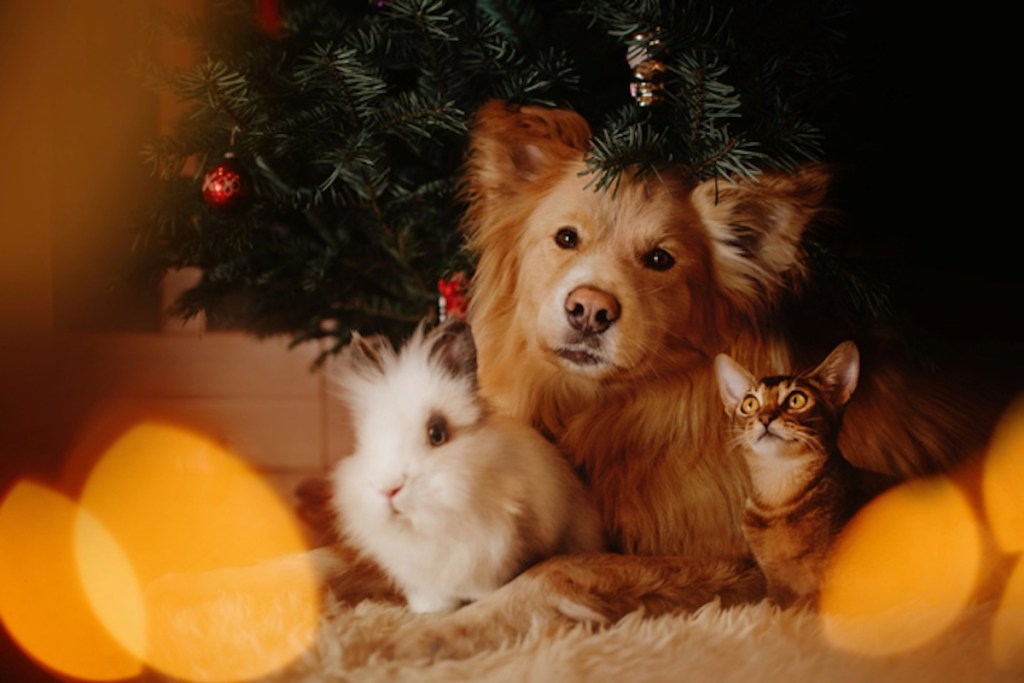
Christmas trees
It may seem like a cute TikTok video, but pets jumping up on Christmas trees can actually turn deadly. Some are attracted to the smell, the lights, or the ornaments, but you need to protect your animals from themselves (not to mention the collateral damage if it falls over). Cats, in particular, often attempt to climb up Christmas trees, just as they would in the wild, especially if they feel stressed by extra people or noise in the home.
To keep them at bay, Dr. Chyrle Bonk, DVM, advises: “Placing foil or citrus peels around the trunk and base of the Christmas tree can keep cats away, or you may consider placing an ex-pen fence around it to keep pets away from the presents as well.” The fence, in particular, will keep all creatures from your decorations and ensure everyone is safe.
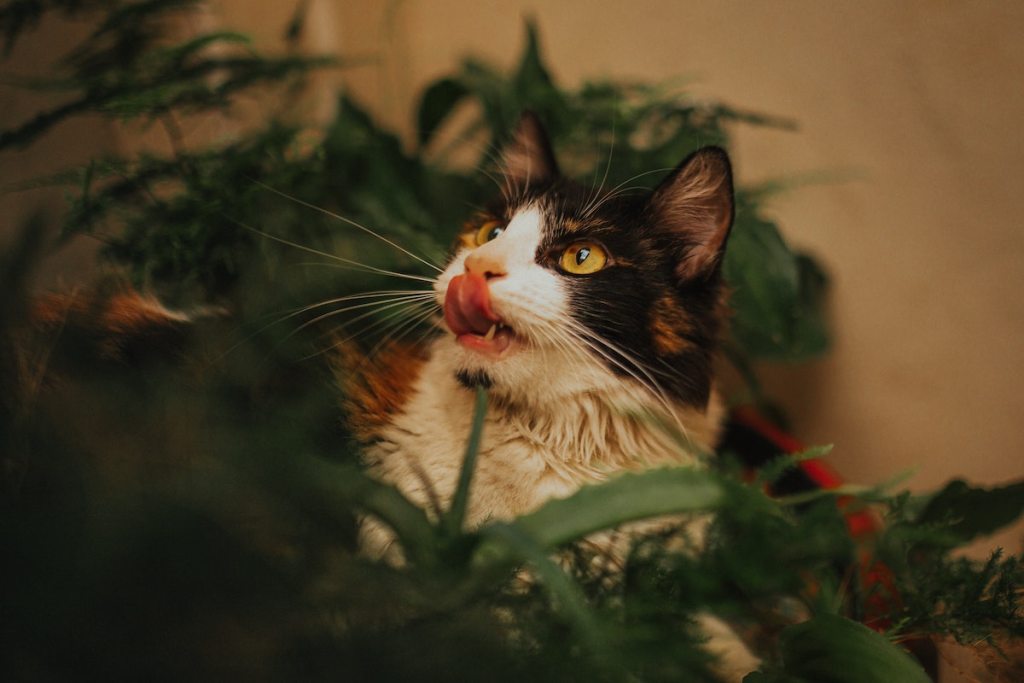
Mistletoe
Unfortunately, lots of holiday plants are poisonous to our four-legged friends. Holly, mistletoe, lilies, and pine needles can all cause complications — everything from an upset stomach to a fatal reaction. If you decide to bring these plants inside, keep them totally out of reach of even the most acrobatic of pets.
Some vets advise leaving decorative plants outside entirely or placing them in a separate room with a closed door. Remember, holly and pine can handle the cold winter weather, so go ahead and stick those on the porch, out of the way.
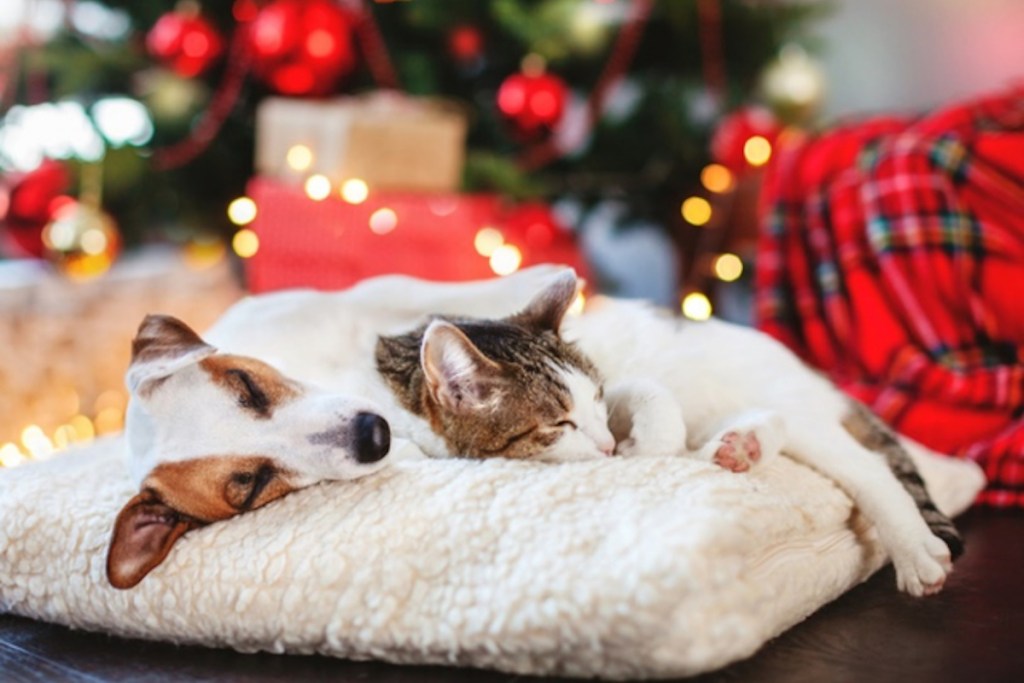
Tinsel
This beautiful accessory looks completely harmless, but it might harm or even kill your cat. Vet, Monika Šragová, advises: “I would strongly advise against tinsel, especially if you have a cat, as it can be deadly. Tinsel, ribbons, yarn… anything that’s “stringy” can result in a condition we call a linear foreign body.”
If you notice your pet has ingested any of these things, make a call to your vet immediately. They may perform tests like x-rays to determine if your furball needs surgery or if they can pass it on their own. Remember, you can always dedicate a Christmas room to keep everything that could attract your furry friend with a locked door to keep them safely out.
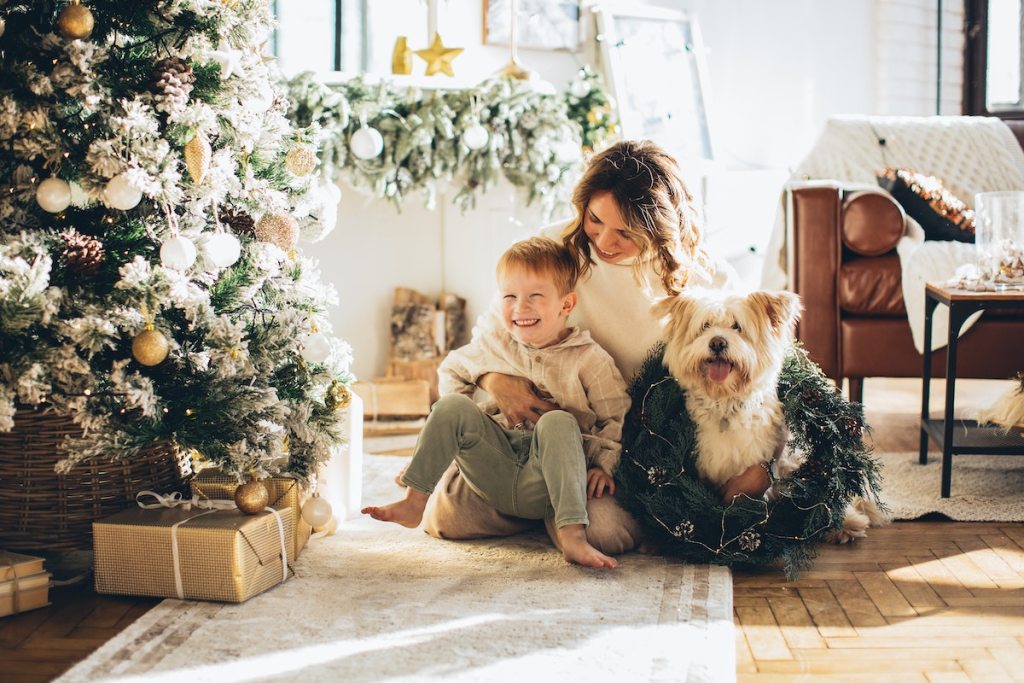
Wreaths
We already covered mistletoe, but poinsettias can also cause stomach issues in many pets. Kasey Turner, an animal behaviorist, explains: “Poinsettias are harmful to dogs and cats, so it’s best to keep them out of reach. If your pet consumes poinsettias, you might notice symptoms like drooling, vomiting, or diarrhea. Also, if the milky sap of the plant comes in contact with your pet’s skin or eyes, it could cause dermal irritation, including redness, swelling, and itching.”
That’s right, even if the plants stay totally out of reach, it could still lead to issues because even skin contact can harm them. Animal specialists recommend bringing in fake wreaths instead, since those won’t ever create problems, even if your beastie gets a hold of them. Paper or cloth won’t hurt your cats or dogs.
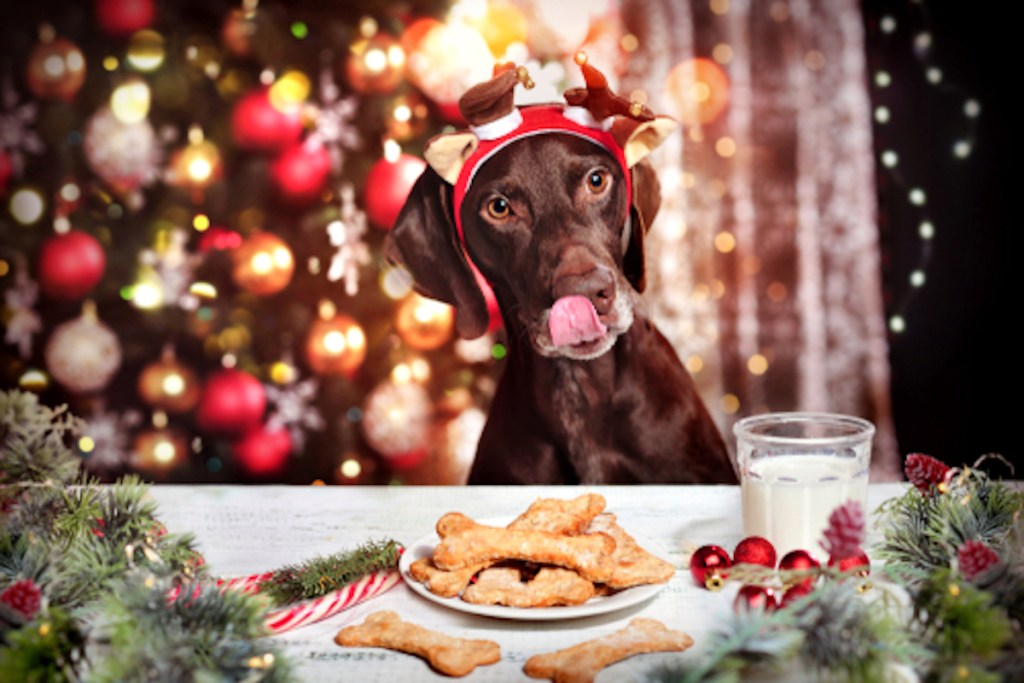
Dinner
You work hard to make a delicious Christmas feast complete with dessert and then set the table. Suddenly, your great-aunt rings and everyone steps out for a call just for a minute. Not 5 minutes later you return, and the chocolate has disappeared from the table. This describes many pet parent horror stories that often end in an emergency vet visit. In addition to that deadly sweet, grapes, caffeine, onions, and garlic can also cause issues. Many sugar-free desserts also contain xylitol, which can cause shock so quickly that you might not even make it to the vet. Lastly, remember that dogs and cats should never eat cooked bones.
Dr. Linda Simon, explains, “While it may be tempting to toss the turkey carcass to our dog, bones should not be given. They can cause tooth fractures, gut obstructions, or severe constipation.” If you want to dote on your animal, Dr. Simon recommends: “Stick with some lean meat.” For the safest setup, crate or secure your pup during the big meal and place leftovers in sealable containers that require thumbs to open. Then give them a delicious kibble dinner away from the action.
Your pets might love seeing their doting grandparents, smelling the aromas of Christmas, and getting a stocking full of treats from Santa, but the holidays could also be a time of stress for them. Because of this, you need to keep an extra eye on your pets and make sure they stay out of trouble. This way, everyone will have a very happy and healthy holiday season with no unexpected vet visits required.



